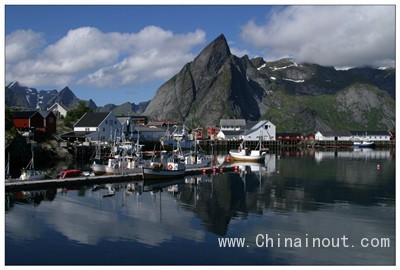德國(guó)人從經(jīng)濟(jì)反彈中獲得的益處超過(guò)了美國(guó)人從經(jīng)濟(jì)復(fù)蘇中獲得的益處,得益于該國(guó)在教育和基礎(chǔ)設(shè)施上的更大投資,。
在中國(guó),,由于污染和其他因素的影響,經(jīng)濟(jì)快速增長(zhǎng)只能緩慢轉(zhuǎn)變?yōu)檎w經(jīng)濟(jì)“福祉”,,而在亞洲新的增長(zhǎng)冠軍印度,,進(jìn)步甚至更為遲緩。
上述結(jié)論是波士頓咨詢公司(Boston Consulting Group,,簡(jiǎn)稱BCG)最新研究的其中一些關(guān)鍵成果,。該公司試圖編制一項(xiàng)衡量經(jīng)濟(jì)“福祉”的寬泛指標(biāo),超越政策制定者通常使用的國(guó)內(nèi)生產(chǎn)總值(GDP),、通脹和失業(yè)率等指標(biāo),。為此,BCG指數(shù)計(jì)入健康,、教育和基礎(chǔ)設(shè)施以及GDP增長(zhǎng)波動(dòng)和不平等之類更為不尋常的指標(biāo),。
該公司的《2015年可持續(xù)經(jīng)濟(jì)發(fā)展評(píng)估報(bào)告》(2015 Sustainable Economic Development Assessment)包括一些可以預(yù)測(cè)的結(jié)果。在148個(gè)經(jīng)濟(jì)體的福祉排名中,,高居榜首的是挪威,。在前十大經(jīng)濟(jì)福祉國(guó)家中,有5個(gè)是北歐國(guó)家,,而新加坡是唯一的非歐洲國(guó)家,。
排名墊底的是最近幾年飽受戰(zhàn)火蹂躪的中非共和國(guó)。
但該報(bào)告也包含一些發(fā)人深省的觀察,。
BCG報(bào)告的作者們寫道,美國(guó)排名第17位“主要是因?yàn)槠涫杖肫降确矫娴钠H醣憩F(xiàn)”,。在10個(gè)衡量指標(biāo)中,,美國(guó)有8項(xiàng)落后于其他國(guó)家,尤其是在基礎(chǔ)設(shè)施方面,。
BCG表示,,盡管人們長(zhǎng)期認(rèn)為美國(guó)充滿了機(jī)遇,但結(jié)果表明,,美國(guó)將財(cái)富和增長(zhǎng)轉(zhuǎn)化為整體福祉的能力低于平均水平,。
與德國(guó)對(duì)比尤其耐人尋味,。從2006年到2013年,兩國(guó)GDP平均增長(zhǎng)率均為1.1%(按購(gòu)買力平價(jià)衡量),,但德國(guó)在將這種增長(zhǎng)轉(zhuǎn)化為更全面的經(jīng)濟(jì)福祉方面做得更好,。
BCG表示,歐洲最大經(jīng)濟(jì)體將增長(zhǎng)轉(zhuǎn)化為福祉的能力相當(dāng)于一個(gè)平均增長(zhǎng)率達(dá)到6.2%的經(jīng)濟(jì)體,,而美國(guó)僅相當(dāng)于增長(zhǎng)率為0.5%的經(jīng)濟(jì)體,。
按購(gòu)買力平價(jià)衡量,中國(guó)同期平均增速接近12%,,在將迅猛經(jīng)濟(jì)增長(zhǎng)轉(zhuǎn)化為經(jīng)濟(jì)福祉方面總體上做得不錯(cuò),。
然而,中國(guó)在148個(gè)經(jīng)濟(jì)體中僅排名第76位,,這主要是因?yàn)樗?項(xiàng)單獨(dú)指標(biāo)上遜于全球中值:經(jīng)濟(jì)穩(wěn)定性,、收入平等度、治理和環(huán)境,。在BCG評(píng)比的所有經(jīng)濟(jì)體中,,中國(guó)的環(huán)境得分最低。
研究發(fā)現(xiàn),,中國(guó)將增長(zhǎng)轉(zhuǎn)化為福祉的能力也依然遠(yuǎn)高于其亞洲競(jìng)爭(zhēng)對(duì)手印度,。
按照BCG更為寬泛的經(jīng)濟(jì)福祉指標(biāo),預(yù)計(jì)今年經(jīng)濟(jì)增速將超過(guò)中國(guó)的印度,,在148個(gè)國(guó)家中僅排名第110位,,落后于危地馬拉、加納和圭亞那等國(guó)家,。
BCG報(bào)告的作者們指出,,印度在健康、教育和基礎(chǔ)設(shè)施以及減少貧困指標(biāo)上近年有所進(jìn)步,。然而,,它在環(huán)境、經(jīng)濟(jì)穩(wěn)定性和就業(yè)等其他指標(biāo)上進(jìn)展仍遜于平均水平,。(
中國(guó)進(jìn)出口網(wǎng))
Germans are benefiting more from their economic rebound than Americans are from the US recovery thanks to greater investment in education and infrastructure.
In China, rapid economic growth is being hindered by pollution and other factors and translating only slowly into broader economic “wellbeing” while in India, Asia’s new growth champion, progress has been even slower.

These are some of the key findings of the latest attempt by the Boston Consulting Group to compile a broad measure of economic “wellbeing” that goes beyond the usual metrics of gross domestic product, inflation and unemployment used by policy makers. To do so the BCG index takes into account investment in health, education and infrastructure as well as more unusual measures such as the volatility of GDP growth and inequality.
The consulting group’s 2015 Sustainable Economic Development Assessment includes some predictable results. Topping the list of 148 economies for wellbeing is Norway. Five of the top 10 countries for economic wellbeing are Nordic and Singapore is the only non-European country in the top decile.
At the very bottom of the list lies the Central African Republic, a country devastated by conflict in recent years.
But it also contains some thought-provoking observations.
The US comes in at number 17 “primarily because of its weak showing in income equality”, the BCG report’s authors write. It lags behind the rest of the world in eight of the 10 dimensions measured, particularly in infrastructure.
Despite the longstanding view that the US is a land of opportunity it turns out, according to BCG, that it is below average in its ability to convert both wealth and growth into a broader wellbeing.
The comparison with Germany is particularly striking. Between 2006 and 2013 both recorded an average GDP growth of 1.1 per cent (measured by purchasing power parity). But Germany did a much better job of translating that into a wider economic wellbeing.
The biggest economy in Europe’s ability to convert growth into wellbeing was equivalent, according to BCG, to an economy growing at an average rate of 6.2 per cent. In the case of the US it was equivalent to that delivered by growth of only 0.5 per cent.
China recorded average growth of almost 12 per cent in PPP terms over the period measured, according to BCG, and had done a generally good job of translating the breakneck growth into economic wellbeing.
However, it ranked only 76th out of 148 largely because it fell below the global median in four separate measures: economic stability, income equality, governance and the environment. It had the lowest score of any economy in the BCG rankings with regard to the environment.
China also remained well above Asian rival India in its ability to translate growth into wellbeing, the study found.
India, wher growth is this year expected to overtake that of China, came in just 110th out of 148 on the BCG measure of broader economic wellbeing, putting it behind countries such as Guatemala, Ghana and Guyana.
India has been making progress in health, education and infrastructure and also in poverty reduction, the BCG authors note. It still, however, recorded subpar progress in other dimensions including the environment, economic stability and employment.












